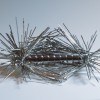What Are Magnetic Metals?
It is common knowledge that magnets attract metals but not all metals. Some metals contain certain properties that make them more magnetic than others. One metal that is highly magnetic is iron. What are the other types of magnetic metals?
There are three main types of magnetic metals: ferromagnetic, paramagnetic, and diamagnetic.
Ferromagnetic Metals
Ferromagnetic metals have the strongest attraction to metals. It is also interesting to note that these materials are also commonly used to make magnets. For example, neodymium magnets are made of neodymium, iron and boron (NdFeB). Ferromagnetic materials can hold their magnetic field. In other words, if you were to rub a strong neodymium magnet against a screwdriver made with iron, the screwdriver would retain some of that magnetism. When you remove the magnet and place the screwdriver next to a magnetic material like a paperclip, it would act like a magnet and pick it up.Paramagnetic Metals
Paramagnetic metals are very weakly magnetic in comparison to ferromagnetic metals. Unlike ferromagnetic materials, these do not retain magnetism once a magnetic field is removed. Some examples of paramagnetic metals are: platinum and aluminum.Diamagnetic Metals
Instead of being strongly or weakly attracted to magnets, this type of metal is generally repelled by magnetic fields. Unlike paramagnetic materials that create an induced magnetic field in the same direction as the applied magnetic field, diamagnetic materials create one that is in the opposite direction. This is what causes these metals to repel magnets, and in some instances of levitation, diamagnetism is at work. You can create your own diamagnetic levitation, with this experiment.Magnetic Metals List
Ferromagnetic- Iron
- Cobalt
- Nickel
- Platinum
- Aluminum
- Gold
- Bismuth
- Lead
- Carbon Graphite

